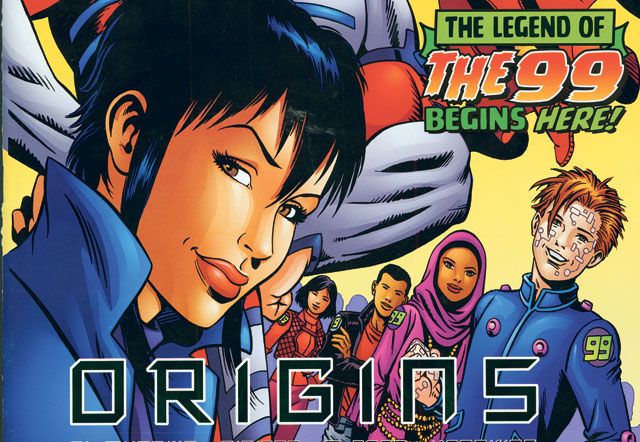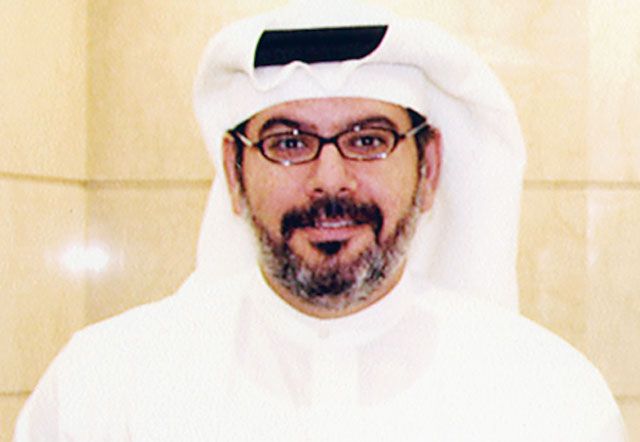Dubai: You know that Arab innovation has come a long way when superheroes created in Kuwait have the privilege of fighting evil alongside veterans like Superman and Batman.
That is exactly what The 99, the Islamic superheroes created by Kuwaiti psychologist Nayef Al Mutawa, are about to do in a new comic book series to be launched by DC Comics.
Al Mutawa has catapulted the series into the international limelight. Television giant Endemol has turned the series into an animated TV show.
Much of its appeal has to do with the concept of the comic book, which has a story and a set of characters that are deeply Islamic yet entirely secular.
Al Mutawa reached this delicate balance by introducing characters based on Islamic values that he says are universal.
"Even atheists have those values. They don't tell their kids to lie three times a day," he says.
While the characters reflect Islamic values, they are not necessarily Muslim, as religion is absent from the story. The superheroes come from 99 countries and their names reflect their ethnic backgrounds.
"I will only consider this an achievement when a Muslim kid thinks these are Muslim characters, a Christian kid thinks they are Christian, a Jewish kid thinks they are Jewish and a Hindu thinks they are Hindu," he says.
Dark period
The story starts at a dark period of Islamic history associated with tragedy and decline.
It is set in 1258. Abbasid Baghdad, one of the world's richest cities, is being sacked by the Mongol army of Hulagu Khan, grandson of Genghis Khan. The Mongols destroy the Bait Al Hikma, the House of Wisdom, throwing its vast wealth of books and knowledge into the Tigris river, and marking the end of the Golden Age of Islam.
The ink from the books, it is said, turns the river black for the next six months.
A group of librarians from the Bait Al Hikma are determined not to let the knowledge be lost forever. They drop 99 stones into the river to absorb the wisdom, to be known later as Noor Stones.
A century later, after the Noor Stones make their way to Andalusia, the son of one of the guardians of the stones, Rughal discovers their extraordinary powers and plans to exploit them. He disappears, and so do the stones.
In the present day, Rughal is found to be alive and bent on exploiting the stones' powers, and that is where 99 superheroes step in to stop him.
Each superhero acquires powers from the stones that are loosely associated with the 99 attributes of God in Islam. Jabbar, the powerful, is a Saudi character who has extraordinary strength, Noora, the light, is an Emirati character that creates holograms, Mumita, a Portuguese character has martial arts skills.
This did not come without its share of controversy with conservative Muslims accusing it of bid'a, innovation in worship or heresy, in associating God's attributes to human beings.
But Al Mutawa rejects the notion that Islam is black and white.
"The words bid'a [heresy] and ibda' [innovation] come from the same source. And the words fikr [thought] and kufr [infidelity] come from the same three letters. I don't think that's a coincidence," he says.
What is he implying?
"I'm implying that people in our culture try to make thinking and creativity into wrong and harmful things," he explains.
He mentions the ministries of information in Arab countries "which are supposedly [banning] things to allow us to preserve our culture".
"They are killing our culture," he says.
The creativity he refers to is applying what he sees as the formula of comics in the West to the Islamic world.
"Spiderman, Superman and Batman are based on Judeo-Christian archetypes. Like [some of] the prophets, all the superheroes are orphans; Batman is raised by an uncle. The prophets get the message from God through Gabriel, but Peter Parker is sitting in a library in Manhattan when a spider comes from above and gives him his message through a bite. Bruce Wayne is in his bedroom when a bat flies over his head. Superman not only gets his message from Krypton, the heavens, but when his father sends him to earth he says ‘I have sent to you my only son'. That's Jesus from the Bible," he says.
Smart storytelling
Could that be coincidence?
"No. All of them?" he says.
But he does not consider these similarities as subliminal messages or a conspiracy to spread Christianity either. "This is about smart story telling. There are over a billion people who share a common education: the Bible. The old stories are built on a new architecture. They are familiar; they hit home."
Al Mutawa went back to the Quran and applied the formula to Islamic history, where he found his villain, Rughal. The character's name is based on Abu Rughal, who in 550AD is said to have guided the Abyssinian emperor's Yemen governor Abraha to Makkah in the latter's effort to conquer the Holy City and destroy the Ka'aba. Abu Rughal is cited in Islamic history as a traitor.
Since the people of Makkah could not defend the city against Abraha's 60,000-strong army, God, according to the Quran, sent birds that pelted the army with pebbles carried in their beaks.
The 99 confront their enemy, Rughal, with the Noor stones. The alliance of Islamic superheroes with "Judeo-Christian archetype" superheroes is perhaps testament to Al Mutawa's insistence that The 99 is not an "us against them" project.
Conspiracy theories
For its critics, The 99 works to disprove conspiracy theories that the comic is an attempt to Islamise Western society, and claims in the Muslim world that the superheroes are an ungodly attempt to Westernise, or even Christianise young Muslims.
"We might be different on the behavioural level, but our values are the same," says Al Mutawa.













